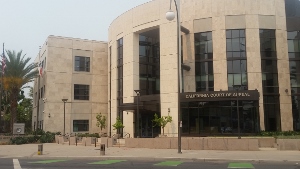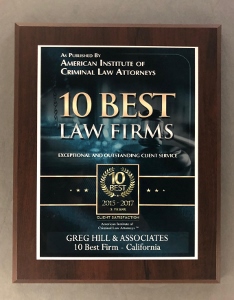Under
Pitchess v. Superior Court (1974) 11 Cal. 3d 531, Evidence Code § 1043 and Penal Code § 833.5, a defendant has a right to review a police officer’s confidential personal records if those files contain information that is potentially relevant to the defense.
In 50 Words or Less: When a Pitchess Motion is Granted, the judge must review the police officer’s confidential personnel records rather than delegate such review to another person.
When a defendant wants to see such records, he must file a motion asking a judge to order the police to produce such files. To win such a motion, aptly named a “
Pitchess Motion,” defendant must show, usually through declarations, that there is good cause to produce the records. Good cause is shown when defendant establishes the materially of the personal records, for example because of an officer’s history of excessive force, dishonesty or false reporting, suggesting the likelihood that the officer again engaged in such conduct.
 Fourth Appellate District CA Court of Appeals Santa Ana
Fourth Appellate District CA Court of Appeals Santa Ana
The next issue is who reviews the records before providing copies to defendant. After all, police officers are wary of fishing expeditions by defendants to obtain personal information that could be used to intimidate, extort or even ruin the career of an officer. Judges are similarly concerned with a trial turning into a circus by needless consumption of time on irrelevant information. Consequently, the issue is whether a judge must examine the record himself or whether the judge can delegate this duty to someone else.
The case of Ronald Sisson addressed these questions.
In November, 2007, police officers from the Costa Mesa Police Department received information that parolee Sisson, who had stopped reporting to his parole officer, was living in Carlsbad. Police believed he was involved in a kidnapping, theft and a criminal street gang. Seven officers from the Costa Mesa Police Department and two parole officers then went to Sisson’s house in Carlsbad in three unmarked cars. They intended to apprehend him.
According to the police report, all the officers wore badges and clothing that identified themselves as police, for example, a black polo shirt with “Gang Unit” written on the front. Another officer wore a shirt that said “Police Gang Unit” on the back. Other officers wore clothing saying “Police” on the front, back and both sleeves.

When officers arrived, Sisson was leaving. It was dark. Only two officers got out of their vehicle. Sisson allegedly panicked and sped away. Sisson allegedly ran over one of the police officer’s feet. He then rammed his vehicle into one of the other cars and sped off.
Police opened fire, shooting over twenty-five rounds at Sisson’s car. One of the rounds killed Sisson’s passenger. Sisson fled on foot, but was soon caught.
Sisson was charged with murder and three counts of assault with a deadly weapons (Penal Code § 245(a)).
Sisson claimed he believed he was under attack by other gang members and that the police officers failed to have their lights on. He claimed police did not identify themselves. He claimed officers also lied about not knowing he had a passenger.
In his motion, he argued he had good cause to see the officer’s personnel records for their history of dishonesty and false reporting because he claimed the police report was false. If Sisson’s version of events were true, he had a self-defense claim to the provocative murder case against him.
The trial court denied Sisson’s motion as to some of the seven officers and Sisson appealed to the Fourth Appellate District.
The appellate court, in Ronald Jay Sisson v. Superior Court of San Diego County (2013 DJDAR 5847), reversed in part, allowing Sisson access to more police records for reports of dishonesty and false reporting. The appellate court also directed that the trial court judge himself or herself must review the records before providing them to defendant, rather than rely upon a delegated person to do so.
The citation for the Fourth Appellate District Court of Appeals ruling discussed above is Ronald Jay Sisson v. Superior Court of San Diego County (4th App. Dist., 2013) 216 Cal.App.4th 24.
For more information about police misconduct, click on the following articles:
- Bad Cops and Pitchess Motions
- U.S. Supreme Court Rules Police May Not Draw Blood without a Warrant When Suspect Refuses Breath or Blood Test
- The Police Took Your Money, Can You Get It Back , Plus Interest?
Contact Greg Hill & Associates
 Fourth Appellate District CA Court of Appeals Santa Ana
Fourth Appellate District CA Court of Appeals Santa Ana